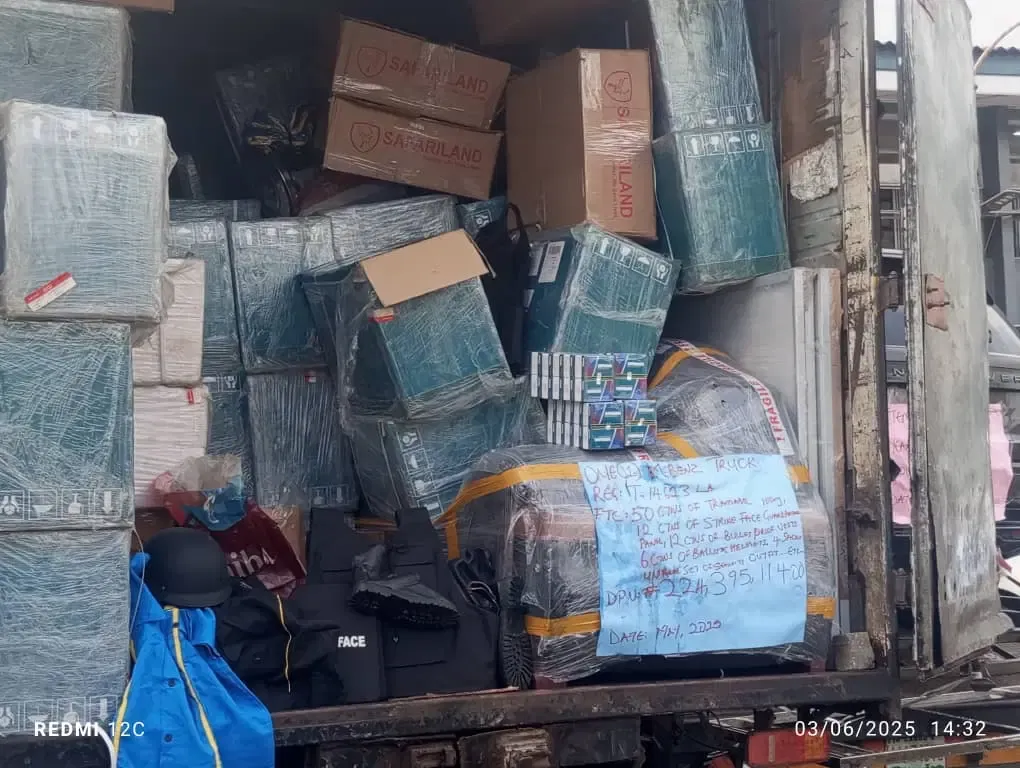A powerful crackdown by the Federal Operations Unit (Zone A) of the Nigeria Customs Service (NCS) has led to the seizure of 46 batches of contraband goods valued at N1.5 billion in just two weeks—an aggressive move underscoring the federal government’s renewed offensive against smuggling and economic sabotage.
The confiscated items span a wide range of illegal imports, including luxury vehicles, prohibited food items, counterfeit goods, and other smuggled commodities. These seizures not only highlight the vast scale of Nigeria’s smuggling problem but also reflect the immense economic damage it causes by draining national revenue and undermining legitimate commerce.
Nigeria’s borders—often poorly secured and deeply porous—have long been exploited by smuggling syndicates. However, the Customs Service has stepped up enforcement with increased patrols, targeted intelligence operations, and strategic raids across major smuggling corridors.
Officials from the NCS emphasized that this recent operation reflects a broader, well-coordinated strategy to clamp down on illegal trade, improve national security, and safeguard local industries. The effort is also part of a wider campaign to restore investor confidence and encourage formal business operations in the country.
The Federal Government’s aggressive stance is not just about intercepting smuggled goods; it is part of a larger economic agenda. Curtailing contraband activities opens space for job creation, industrial growth, and increased tax revenues—critical pillars in Nigeria’s path toward sustainable economic development.
Nigeria’s geographical position in West Africa makes it a hotspot for illicit trade routes that funnel contraband from neighboring countries into local markets. This has necessitated a coordinated and persistent approach to anti-smuggling operations, particularly around key entry points such as land borders and port terminals.
As authorities intensify these efforts, the recent N1.5 billion seizure sends a strong and unmistakable message to smugglers and their collaborators: the era of unchecked illegal trade is coming to an end.
This success is expected to yield positive ripple effects across the economy—especially for legitimate businesses that have long been undercut by illegal imports. It also reinforces the federal government's commitment to transparency, law enforcement, and economic revitalization.

